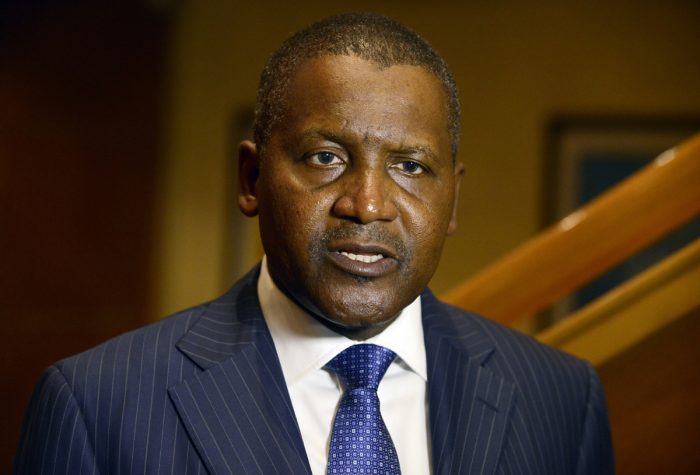The Blomberg Billionaires’ Index released on Wednesday has shown that Africa’s richest man, Aliko Dangote lost 32 per cent of his wealth in 2016 as the combined effect of falling oil prices and the June devaluation of the naira pushed him to No. 112 on the billionaires’ list with $10.4bn. Dangote was the world’s 46th-richest person in June.
Saudi Arabia’s Prince Alwaleed Bin Talal Al Saud fell by $4.9bn, a 20 per cent drop, the report added.
Alwaleed had said in November that all of his stakes in public companies, including Citigroup Incorporated, were potentially for sale, reversing a longstanding policy that some of his most-prized shareholdings were “forever.”
Wealth creation in China turned negative for the first time since the inception of the Bloomberg index five years ago, with the country’s richest losing $11bn in 2016 amid a slump in the Shanghai Shenzhen CSI 300 index and a seven per cent decline for the yuan against the dollar.
Alibaba Group Holding Limited’s founder, Jack Ma, closed the year with $33.3bn, adding $3.6bn in 2016. He dropped in and out of his place as Asia’s richest person for the first four months of the year before claiming it for good in May, after Alibaba’s finance affiliate, which is laying the groundwork for an initial public offering expected as soon as next year, completed a record $4.5bn equity fundraising round.
China has 31 billionaires on the index with $262bn, trailing the US, which has 179 billionaires who control $1.9tn, and Germany, whose 39 individuals have $281bn.
Russian billionaires also began to put the negative effects of the US and European sanctions behind them, reversing the combined $63bn declines for 2014 and 2015, and adding $49bn in 2016.
Wealth managers for the world’s richest are girding themselves for similarly frenetic start to 2017 as the seismic changes that voters demanded this year start to take shape.
“Expect the unexpected,” said Sabine Kaiser, founder of SKadvisory, which advises family offices on venture capital and private equity. “I don’t think family offices are overly concerned or getting too nervous but after Brexit and Trump, they’ve resigned themselves to market volatility.”
In a year when populist voters reshaped power and politics across Europe and the U.S., the world’s wealthiest people are ending 2016 with $237 billion more than they had at the start.
However, the Bloomberg Billionaire index revealed that the world’s richest made $237bn this year.
The gains were led by Warren Buffett, who added $11.8bn during the year as his investment firm, Berkshire Hathaway Incorporated, saw its airline and banking holdings soar after Donald Trump’s surprise victory on November 8. Buffett, who’s pledged to give away most of his fortune to charity, donated Berkshire Hathaway stock valued at $2.6bn in July.
The US investor reclaimed his spot as the world’s second-richest person two days after Trump’s victory ignited a year-end rally that pushed his wealth up by 19 per cent for the year to $74.1bn.
“The year 2016 has been event-driven with global news driving prices rather than fundamentals,” said Michael Cole, president of Ascent Private Capital Management, which has about $10bn of assets under administration.”


